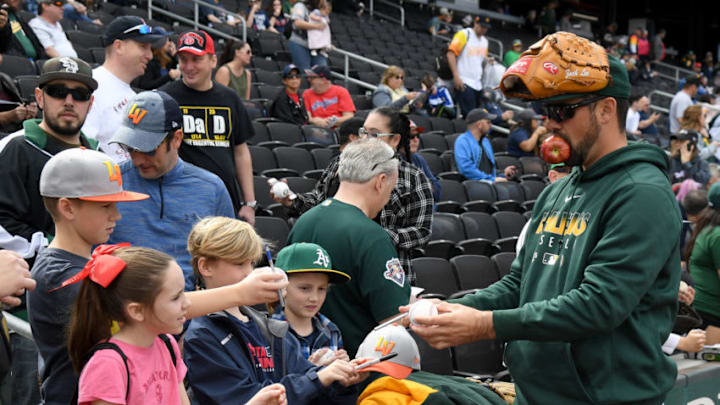It’s time for the MLB to forget about 2020 and focus on fixing the CBA before it’s too late.
At this point in the negotiations over whether, how, and when to begin a 2020 MLB season, I feel very much like a parent whose kid once kicked a heroin habit and is now relapsing.
I want to seize the two sides by the neck, shake their collective heads, lock them in a room, hold their hands and say, ‘whatever you do, don’t go back there.’
More from Call to the Pen
- Philadelphia Phillies, ready for a stretch run, bomb St. Louis Cardinals
- Philadelphia Phillies: The 4 players on the franchise’s Mount Rushmore
- Boston Red Sox fans should be upset over Mookie Betts’ comment
- Analyzing the Boston Red Sox trade for Dave Henderson and Spike Owen
- 2023 MLB postseason likely to have a strange look without Yankees, Red Sox, Cardinals
‘There’ obviously is any place involving labor strife. For most of my adult life, such strife was a given in baseball. From the late 1960s all the way through to the late 1990s, any time the CBA required restructuring turmoil ensued…and that turmoil was destructive.
Then, somehow, in 2002 a remarkable thing happened…nothing. Players and owners actually settled their differences – not easily and not necessarily amicably – but with certainty. They signed another Basic Agreement beginning in 2007, a third effective in 2112, and a fourth starting in 2017.
That latest CBA worked out between Rob Manfred and Tony Clark — who remain the negotiating principals — continues through 2021. That means the present dispute isn’t technically about a long-term deal, merely a 60-day or thereabouts one designed to put some players on the field for some short period of time, hopefully without moving the Covid-19 needle too much.
Except this season’s already half shot, and all the sides have done thus far is poison the negotiating well one year hence.
So I have a better suggestion. It is this.
Forget the short-term issues. Write off 2020. From this point forward your job – your only job — is to negotiate a new Basic Agreement emphasizing one element above all. That element is permanence. The short-term issues are not important to the game’s stability; the long-term issues are.
If we as fans must have a strike season, let it be 2020. Heck, we’ve already gone through half of it; that’s longer than any in-season period of inactivity in baseball history. We can cope with another couple of months of sitting around plus no post-season. We even have a rationale: COVID.
But to cope with that, we need to be assured that this isn’t all merely a prelude to another stoppage coming up a little more than a year from now. In other words, no more relapses.
There is a straightforward way to ensure labor-management peace, and I have argued for it in this space on previous occasions. It is for the next CBA to incorporate a provision creating a third oversight entity…one chosen not by the owners or players, but by the fans.
In concert with the commissioner and the head of the Major League Baseball Players Association, this person would be empowered to resolve all matters in dispute between the other two parties.
Obviously this person should have no connection to either of the two existing principal entities. Its independence will be vital to its existence.
But the creation of such a position is only a suggestion, a method toward the end game. It is that end game – a CBA moving forward from 2021 – that at this stage is of primary importance.
We are fast approaching the point if we haven’t already passed it, where there is nothing to the 2020 MLB season as an on-field accomplishment worth saving. For this lost season to have value, then, it must serve as the vehicle by which a second lost season is avoided and long-term labor-management peace is continued. An intervention, if you will.
As with a relapsing child, I have to recognize the past and present, but I am only empowered to change the future. It’s time for all the parties involved in this dispute to drop the pretense of worrying about 2020 and focus efforts on saving the game long-term.
